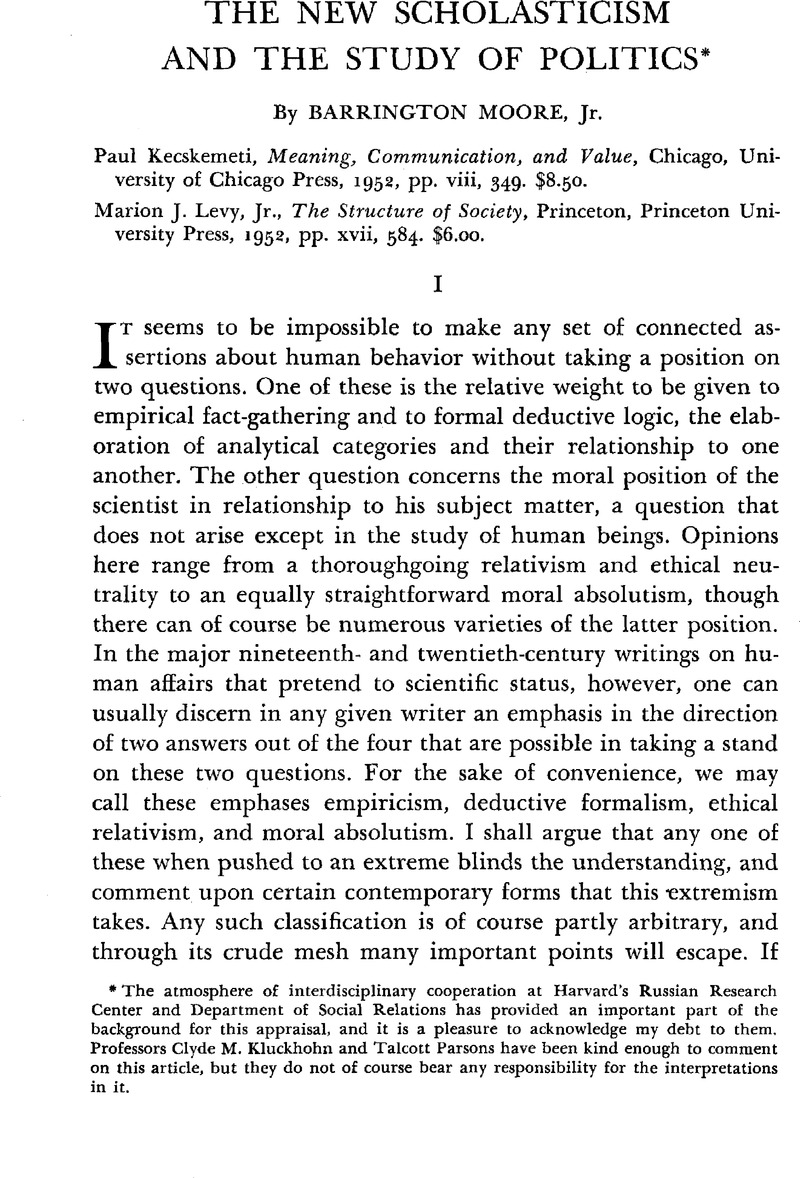Article contents
The New Scholasticism and the Study of Politics*
Published online by Cambridge University Press: 18 July 2011
Abstract

- Type
- Review Articles
- Information
- Copyright
- Copyright © Trustees of Princeton University 1953
References
l A logician, such as Hans Reichenbach, however, argues that any proposition is a probability statement and thus comes to the opposite conclusion that some form of the notion of chance has universal applicability. See his Experience and Prediction, Chicago, 1938.
2 The reader may wish to judge for himself by examining some of the formalist writings that attempt empirical application, i.e., particularly the last three essays on political matters in Parsons, , Essays in Sociological Theory Pure and Applied, Glencoe, III., 1949Google Scholar, or Levy, , The Family Revolution in Modern China, Cambridge, Mass., 1949.CrossRefGoogle Scholar
3 Power and Society, New Haven, 1950, pp. 190–91.
4 In this connection, see Rostow, W. W., “Toward a General Theory of Action,” World Politics, v (July 1953), pp. 538–43.Google Scholar
5 “Personality and Social Structure,” in Stanton, A. H. and Perry, S. E., eds., Personality and Political Crisis, Glencoe, III, 1951.Google Scholar
6 For a convenient summary of varying viewpoints, see Kroeber, A. L. and Kluckhohn, Clyde, Culture: A Critical Review of Concepts and Definitions, Papers of the Peabody Museum, Harvard University, XLVII, No. 1 (1952), pp. 115–24.Google Scholar
- 8
- Cited by




